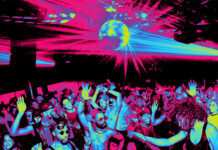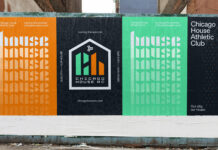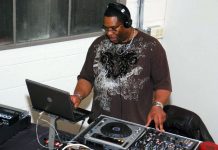Today Cook County Commissioner John Fritchey announced he has filed legislation which would amend Cook County’s amusement tax, a controversial reading of which has recently placed electronic music and the venues that showcase DJ-driven entertainment at risk.
“I don’t believe that government should be playing culture police and deciding what constitutes ‘music,'” Fritchey said in a statement. “Going after small businesses who have in good-faith complied with what should be a commonsense reading of the law is just plain wrong and to have it happen in a city that has given the music industry some of its most famous DJs and rappers just adds insult to injury.”
Fritchey’s amendment (posted on Facebook) was first reported by the Chicago Reader.
Amendment Filed to Clarify the Meaning of ‘Music’ https://t.co/kzZrl24WoW
— John Fritchey (@johnfritchey) August 30, 2016
Fritchey’s legislation is in response to Anita Richardson, a Cook County administrative hearing officer who claimed that venues featuring “rap music, country music and rock ‘n’ roll” do not fall under the definition of “fine art” and are therefore subject to the County’s 3% amusement tax. Venues are exempt from the tax if they have less than 750 capacity and feature “fine art,” which includes music.
At a hearing last week, Richardson claimed that practically all forms of popular music – and DJ-centered music in particular – were not fine art. Two venues, Evil Olive and Beauty Bar, are subsequently being docked an estimated $200,000 in back taxes covering the last several years.
The effect of Richardson’s absurd logic would have a chilling effect on the Chicago music industry.
Fritchey’s amendment was written with the support of the local music industry. “Small music venues in Chicago and Cook County serve as music incubators that provide valuable opportunities for DJs, bands and artists of any or all genres of music to perform for audiences allowing them not only to showcase their art while also creating jobs and adding to our local economic engine,” Metro/Smartbar owner Joe Shanahan is quoted in the release. “For these venues to be faced with the possibility of being penalized for reasonably believing that they were complying with the regulations is not a healthy pro-business or pro-cultural approach for a community that constantly needs to be nurtured in order to flourish and survive.”
Fritchey also announced he had sent a letter to the county board President Toni Preckwinkle asking that she intervene to direct the county Department of Revenue to cease attempting to collect excessive back taxes from venues under scrutiny that have been in compliance with the City of Chicago’s policies:
Cook County has an obvious obligation to collect all legitimate taxes owed to it and to appropriately deal with any business failing to comply with their legal obligations…I believe that it would be appropriate and equitable that the County not seek back taxes from businesses that can demonstrate that they have been in compliance with City policies regarding amusement taxes for such venues. I would respectfully ask that you make the determination to direct our Department of Revenue to proceed in this manner.
Commissioner Fritchey plans to formally introduce the amendment at the next County Board meeting on September 14, 2016.
Photo: The Chicago way…
























[…] https://5mag.net/news/feed/chicago-tax-war/ […]
Good article, Terry. Local politicians aren’t qualified to judge what is or isn’t “art.” I think even if they try to enforce the “entertainment” tax policy, it will ultimately be repealed in higher courts when businesses contest the legitimacy of defining certain music venues as “entertainment” and others as “art.” It’s far too subjective, especially so in the city of House music.
[…] nothing much we could do here but offer solidarity from abroad (which has been amply returned with our own Chicago problems.) And, apparently now, our […]